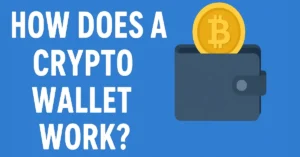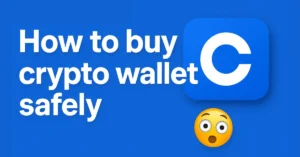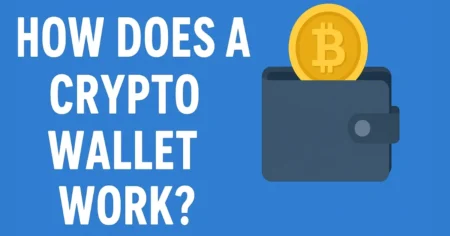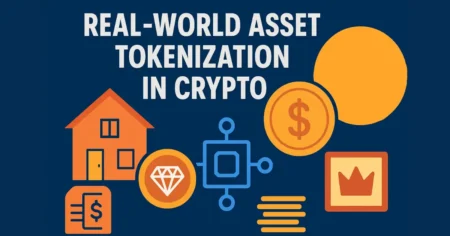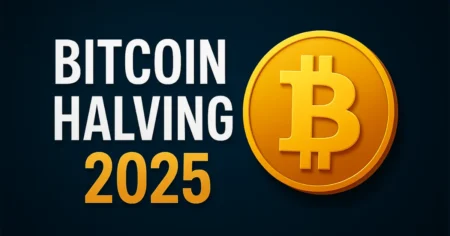Best crypto platform
Introduction to Crypto Platforms
What Are Crypto Platforms?
Crypto platforms are the digital gateways that allow users to buy, sell, trade, and store cryptocurrencies like Bitcoin, Ethereum, and thousands of other digital assets. Think of them as the stock brokers of the crypto world. These platforms provide the necessary infrastructure, wallets, and security protocols for crypto enthusiasts—both beginners and experts—to manage their investments seamlessly.
In essence, a crypto platform acts as a bridge between you and the blockchain. Whether you’re buying Bitcoin for the first time or executing complex trades with altcoins, the platform you choose can significantly impact your trading journey. From user experience and fee structure to the number of coins supported and how secure the environment is, everything counts.
Today, crypto platforms are not just about trading. Many now offer staking services, savings options, lending and borrowing crypto, and even NFT marketplaces. With crypto rapidly becoming mainstream, the right platform can be your all-in-one financial hub.
Why Choosing the Right Platform Matters
Imagine depositing your hard-earned money into a crypto platform, only to realize later that it has a high withdrawal fee, lacks proper security, or worse, gets hacked. These scenarios are not far-fetched. That’s why choosing the right crypto platform is one of the most critical decisions in your crypto journey.
Your platform is not just a place to make trades—it’s your operational base. A reliable platform ensures smooth order execution, access to real-time market data, and a secure environment for your assets. Additionally, platforms differ vastly in their features. Some are beginner-friendly, while others cater to seasoned traders with advanced charting tools and APIs.
Regulation is another key factor. A trustworthy platform operates under specific laws and compliance standards, providing an extra layer of safety. Choosing the wrong platform can cost you more than just money—it could cost you your peace of mind. So, take your time, do your research, and align your choice with your needs and goals.
Key Features of a Reliable Crypto Platform
Security Measures and Protocols
Security should be your top priority when evaluating a crypto platform. In the past, the crypto space has seen numerous exchange hacks and scams, costing users billions of dollars. So, what sets a secure platform apart?
Look for features like:
- Two-Factor Authentication (2FA): Adds a second layer of protection to your login.
- Cold Storage: The Majority of funds are stored offline to prevent hacks.
- Withdrawal Whitelists: You can lock withdrawals to trusted wallet addresses only.
- Insurance Funds: Some exchanges insure user assets against cyberattacks.
A reliable crypto platform should also have a proven track record with no major security breaches. Read user reviews, check Reddit forums, and look for transparency in their security policies. You should never feel like your funds are at risk, no matter the market condition.
User Interface and Experience
Whether you’re a crypto newbie or a professional trader, the user interface (UI) of a platform can make or break your experience. A clean, intuitive UI reduces the learning curve and ensures you can execute trades quickly and efficiently.
Beginners should look for:
- Simple navigation
- One-click buy/sell options
- Educational resources integrated into the platform
Experienced users may prefer:
- Advanced trading charts
- Customizable dashboards
- API access and trading bots
A platform’s mobile experience also matters. Many users trade on the go, so a laggy or underwhelming app can lead to missed opportunities or even costly mistakes. The best platforms strike the right balance between power and simplicity.
Transaction Fees and Costs
Hidden fees are the silent killers of crypto profits. Many platforms advertise low fees but sneak in hidden charges for deposits, withdrawals, or even inactivity. It’s crucial to understand a platform’s fee structure before committing.
Here are typical charges to watch out for:
- Trading Fees: Usually between 0.1% to 1% per trade.
- Deposit/Withdrawal Fees: Some are free, others charge depending on the currency or payment method.
- Spread Fees: The difference between buy and sell prices, common in brokerage platforms.
Some platforms offer fee discounts for high-volume traders or native token holders. For example, Binance users get lower fees if they pay using BNB. Always compare platforms not just by the visible trading fee, but by the overall cost of using their services.
Supported Cryptocurrencies and Pairs
Not all platforms support the same number of cryptocurrencies. While some offer hundreds of altcoins and trading pairs, others focus on the most popular assets like Bitcoin and Ethereum. Your ideal platform should support the coins you’re interested in trading or investing in.
If you’re into:
- Mainstream Coins: Coinbase, Kraken, and Gemini are excellent.
- Altcoins and DeFi tokens: KuCoin and Bitget offer a wider selection.
- New Listings and Emerging Projects: Binance and Bybit often list new tokens faster.
Also, look for fiat trading pairs like BTC/USD or ETH/EUR. This makes it easier to enter or exit the market directly with your local currency.
Types of Crypto Platforms
Centralized vs. Decentralized Exchanges
Understanding the difference between centralized and decentralized crypto platforms is crucial for picking the best one for your needs. These two types serve the same primary function—facilitating crypto trades—but they operate very differently.
Centralized Exchanges (CEXs) are platforms like Binance, Coinbase, and Kraken, where a company operates the exchange and manages user assets. These platforms usually require users to sign up with personal identification (KYC), making them compliant with government regulations. The benefit? They tend to offer better customer support, faster transactions, higher liquidity, and user-friendly interfaces. But the downside is that since the exchange controls your private keys, you don’t truly “own” your crypto until you transfer it to a private wallet.
On the flip side, Decentralized Exchanges (DEXs) like Uniswap, PancakeSwap, and SushiSwap run on blockchain protocols, letting users trade directly from their wallets. You retain control of your private keys, which adds a layer of personal security. However, DEXs often come with a steeper learning curve, less liquidity, and slower transaction speeds. Also, customer support is virtually non-existent.
For beginners and everyday users, centralized exchanges offer ease and convenience. More experienced users who value privacy and control often prefer decentralized options. Knowing which camp you fall into can greatly streamline your platform selection process.
Brokerage Platforms
Crypto brokerage platforms function like digital middlemen. Instead of matching buyers with sellers like exchanges do, brokers sell crypto directly to users at prices they set. This makes them incredibly easy to use—ideal for people who are new to the crypto space.
Popular brokers include Crypto.com, eToro, and Robinhood. These platforms often combine crypto buying with other services like stock trading, staking, or even crypto debit cards. The process is simplified—you don’t have to worry about trading pairs or market orders. Just input the amount you want to buy, and you’re good to go.
That said, convenience comes at a cost. Brokers typically charge higher spread fees than exchanges. You might pay more per coin compared to what you’d pay on a traditional crypto exchange. Some also offer limited coin selections and fewer advanced features.
Still, if you’re looking for an all-in-one financial platform with a smooth onboarding experience, brokerage platforms are a solid choice. Just be mindful of what you’re paying for that convenience.
Peer-to-Peer (P2P) Marketplaces
Peer-to-peer (P2P) platforms allow users to buy and sell cryptocurrencies directly with one another. These platforms act as matchmakers, connecting buyers with sellers and facilitating the transaction without holding any funds themselves.
Examples of P2P platforms include Binance P2P, Paxful, and LocalBitcoins. These platforms give users a variety of payment methods, from bank transfers to digital wallets, and even cash-in-person deals. The flexibility is unmatched, especially in countries where direct crypto purchases are restricted or unavailable.
Security in P2P transactions is maintained through an escrow system. When a buyer initiates a transaction, the crypto is held in escrow until payment is confirmed. Once verified, the funds are released. While this adds a layer of safety, it also requires trust in the system and the counterparty.
P2P platforms are perfect for users looking to avoid fees or buy crypto in unconventional ways. However, they can be slower and riskier if you’re not careful. Always check the trader’s reputation and reviews before proceeding.
Top Crypto Platforms in 2025
Binance
Binance has consistently ranked as one of the best crypto platforms globally, and for good reason. It offers a massive range of features, including spot trading, futures, margin trading, staking, an NFT marketplace, and even its blockchain (BNB Chain).
Here’s why Binance is a top choice:
- Supports 500+ cryptocurrencies
- Extremely low trading fees (as low as 0.1%)
- Advanced trading features and charting tools
- High liquidity and fast transaction times
Binance also offers a user-friendly Lite version for beginners, while pro users can access Binance Pro with enhanced tools. The mobile app is highly rated and mirrors most of the desktop features, allowing full control on the go.
The downsides? Regulatory issues in some countries, and the KYC process m,, ay feel invasive to privacy-focused users. But if you’re looking for a comprehensive, all-in-one platform, Binance is hard to beat.
Coinbase
Coinbase is known as the gateway to crypto for millions of people. With its clean interface, regulated operations, and ease of use, it’s the go-to platform for beginners in the United States and Europe.
Here’s what makes Coinbase stand out:
- Intuitive design with instant buy/sell options
- Licensed and regulated in multiple jurisdictions
- Offers educational rewards through Coinbase Learn
- Strong focus on security with FDIC-insured USD balances
Coinbase supports over 250 cryptocurrencies and regularly adds new coins. It also offers Coinbase Pro (now Coinbase Advanced Trade), which gives users access to lower fees and more complex trading tools.
However, its fees are higher than many competitors, especially when using debit cards or instant purchases. Still, if you’re new to the crypto world and want a safe, simple start, Coinbase remains one of the best options in 2025.
Kraken
Kraken is one of the most trusted and secure crypto platforms on the market. Founded in 2011, it has built a reputation for being highly secure, transparent, and regulatory-compliant. It appeals to both beginners and professional traders who value safety and deep liquidity.
Key features that make Kraken stand out:
- Over 220 supported cryptocurrencies
- Advanced order types and margin trading
- Industry-leading security protocols
- Strong customer support and educational tools
Kraken’s interface is clean and easy to navigate, while its Pro version offers advanced tools like real-time order books and customizable charts. The platform also supports staking, giving users a way to earn passive income on assets like Ethereum, Polkadot, and Tezos.
In terms of fees, Kraken’s maker-taker model ranges from 0.00% to 0.26%, depending on trading volume. It’s not the cheapest, but it’s a fair price for the level of service and security you get. Kraken is particularly good for U.S. traders who want access to regulated trading with a wide variety of crypto assets.
Bybit
Bybit has emerged as a powerful contender in the crypto trading space, especially among futures traders and those interested in derivatives. Though originally known for derivatives trading, Bybit now supports spot trading, staking, launchpads, and more.
Highlights of Bybit include:
- Low-latency order execution and powerful trading engine
- Excellent mobile app with full-featured functionality
- Rich selection of trading pairs and perpetual contracts
- User-centric features like copy trading and educational resources
Bybit supports over 400 cryptocurrencies and continues to expand. It also offers a VIP program for high-volume traders and regular promotions that reduce trading fees. Despite not being as heavily regulated as Kraken or Coinbase, Bybit has maintained a strong reputation by keeping user funds secure and offering robust customer support.
Its interface is sleek, especially for those who enjoy trading on the go. However, beginners might find the platform a bit intimidating at first, especially with its heavy emphasis on leverage and advanced trades. Still, for serious traders, it’s one of the best platforms available in 2025.
KuCoin
If you’re looking to explore altcoins and low-market-cap gems, KuCoin is your platform. Often referred to as “The People’s Exchange,” KuCoin boasts an impressive list of over 700 supported cryptocurrencies and trading pairs.
Why traders love KuCoin:
- Huge variety of coins and lesser-known tokens
- Futures and margin trading are available
- KuCoin Earn for staking and lending
- User-friendly mobile app and web platform
KuCoin’s biggest strength is access to coins that are not listed on larger exchanges like Coinbase or Kraken. For traders chasing high-growth assets early, KuCoin is a treasure trove. It also supports features like bot trading and a built-in P2P marketplace.
The main concern is that KuCoin operates from Seychelles and is not regulated in major financial jurisdictions like the U.S. or the EU. However, it has never suffered a major hack, and users still praise its security and uptime.
Fees are competitive at 0.1% per trade, and the KCS token gives discounts and other perks. If you’re an altcoin enthusiast, KuCoin should be high on your list.
Crypto.com
Crypto.com offers more than just a trading platform—it’s an entire ecosystem. With services ranging from a crypto debit card and NFT marketplace to DeFi wallets and staking, Crypto.com caters to users who want to do more than just buy and sell.
Notable benefits of Crypto.com:
- Support for 250+ cryptocurrencies
- Competitive trading and staking rewards
- Metal Visa cards with cashback in CRO
- Intuitive mobile-first design
One of its standout features is the Crypto.com Visa Card, which lets users spend crypto and earn up to 5% cashback. It also integrates with Google Pay and Apple Pay, making crypto spending as simple as fiat transactions.
Security-wise, the platform is ISO-certified, licensed in multiple jurisdictions, and even offers $750 million in insurance coverage. Its fees are decent but drop further if you stake their native token, CRO.
While its app-centric model might feel limiting for advanced traders, Crypto.com shines for people looking to integrate crypto into daily life. It’s ideal for both investors and spenders alike.
Bitget
Bitget is gaining recognition as a powerful trading platform focused on copy trading and derivatives. It bridges the gap between beginner traders and experienced professionals by offering social trading tools that let you follow successful strategies.
Why Bitget is worth your attention:
- Copy trading with real-time performance stats
- Diverse selection of futures and spot markets
- Frequent bonuses, promotions, and low fees
- User-focused design and responsive mobile app
Bitget supports over 200 cryptocurrencies and allows users to participate in trading competitions, yield farming, and launchpad events. It’s particularly attractive to traders who want exposure to perpetual contracts but lack the confidence to go it alone.
The platform offers competitive fees (0.1% for spot and 0.02% for futures), and its copy trading system is intuitive—even beginners can start earning by replicating successful trades. Bitget also offers robust API access and multilingual customer support, expanding its global reach.
It may not have the legacy of Binance or Coinbase, but in 2025, Bitget is one of the fastest-growing platforms—and a strong option for both new and experienced traders.
Gemini
Founded by the Winklevoss twins, Gemini is a highly regulated U.S.-based crypto platform that focuses on compliance, transparency, and simplicity. It’s an excellent choice for investors who prioritize legal security and peace of mind.
Why choose Gemini?
- Licensed in New York and compliant with NYDFS
- Insurance on crypto assets and USD balances
- Easy-to-use interface and well-designed mobile app
- Gemini Earn and Gemini Credit Card features
Gemini supports over 100 cryptocurrencies, with regular additions. It’s particularly friendly to institutional investors thanks to its high-security standards and regulated custody services. Retail users will appreciate Gemini Earn, which offers interest on idle crypto assets.
However, Gemini’s fees are on the higher side, especially for instant purchases. While advanced traders might prefer cheaper platforms, those prioritizing regulation and safety will feel right at home with Gemini.
How to Choose the Best Platform for Your Needs
Consider Your Trading Goals
Before you sign up for any crypto platform, you need to ask yourself: What do I want to achieve with crypto? Your trading goals will shape everything—from the type of platform you choose to the features you’ll need.
Are you a casual investor who just wants to buy and hold Bitcoin? Then, a simple, beginner-friendly brokerage like Coinbase or Crypto.com will serve you well. These platforms make buying crypto as easy as shopping online.
Maybe you’re an active trader who checks charts daily and hunts for short-term opportunities? In that case, you’ll want a platform with high liquidity, fast execution, and advanced charting tools—think Binance, Bybit, or Kraken Pro.
Or perhaps you’re into altcoins, staking, or DeFi? Then KuCoin and Bitget might be a better fit due to their wide selection and crypto-earning opportunities.
Write down your crypto goals—long-term investment, day trading, passive income, NFT interaction—and match them with the platform that supports those functions best. That one step can save you from switching later or regretting your choice.
Evaluate Customer Support
Let’s be real: even the most experienced traders occasionally run into issues. Maybe a withdrawal gets stuck, your account gets locked, or you need help accessing 2FA codes. When that happens, good customer support becomes your best friend.
The quality of customer service varies drastically between platforms. Regulated platforms like Coinbase, Kraken, and Gemini often offer live chat, email support, and extensive help centers. Some even provide phone support for urgent issues.
Other platforms, especially unregulated ones or those based offshore, might only offer chatbots or slow email replies. That’s frustrating when you’re dealing with large amounts of money.
Before choosing a platform, test their support channels. Ask a few basic questions and see how quickly they respond. Also, read Reddit threads, review sites, and forums to see how others rate their support. Poor service can turn a small issue into a disaster, so don’t skip this step.
Assess Mobile App Performance
Most traders today use their phones as much as, if not more than, their desktops. Whether you’re traveling, at work, or just lying in bed, being able to trade or check your portfolio from your mobile device is non-negotiable.
A powerful, intuitive mobile app can enhance your trading experience immensely. The best crypto platforms—like Binance, Bybit, Crypto.com, and KuCoin—offer full-featured apps that let you do everything from executing trades and checking charts to withdrawing funds and managing your staking rewards.
Look for:
- Fast load times and real-time data
- Easy navigation between the wallet, markets, and account
- Security features like biometric login and app-specific 2FA
- Customizable push notifications for price alerts
Avoid platforms with clunky interfaces, slow responses, or features that are stripped down compared to the desktop version. You want a mobile app that empowers you, not one that limits you.
Common Mistakes to Avoid When Choosing a Platform
Ignoring Fees
Fees might seem small at first, but over time, they can eat into your profits, especially if you’re trading frequently. Many beginners focus only on trading fees and overlook hidden costs like deposit charges, withdrawal fees, spread margins, or even inactivity penalties.
Here’s how you can avoid this trap:
- Compare platforms side-by-side. Use their official fee pages.
- Calculate based on your trading habits. Will you trade daily or hold long-term?
- Watch out for network fees. Some withdrawals (like Ethereum) are costly due to blockchain congestion.
If you’re making a lot of trades, even a 0.1% fee difference matters. Over time, these costs add up, and a high-fee platform can seriously reduce your returns.
Not Researching Security Track Record
You wouldn’t store your life savings in a bank that’s been robbed five times, right? So why risk it with a crypto exchange that’s suffered hacks or shady leaks? Unfortunately, not every platform is created equal when it comes to security.
Before signing up, check the platform’s history:
- Has it ever been hacked?
- What compensation did it offer affected users?
- Does it use cold storage, 2FA, and anti-phishing protections?
Trustworthy platforms—like Kraken, Gemini, and Binance—are transparent about their security practices and often publish detailed reports. If you can’t find any clear info, that’s a red flag.
Protect your investments by sticking with exchanges that prioritize your safety as much as you do.
Overlooking Regulatory Compliance
Crypto is still a grey area in many countries, and regulation is constantly evolving. Using a platform that operates in compliance with your local laws isn’t just a smart move—it could save you from frozen accounts or legal headaches.
Regulated platforms are more likely to:
- Offer insurance or compensation in case of losses
- Comply with anti-money laundering (AML) laws
- Provide better customer protection and transparency
If a platform is banned or unlicensed in your country, avoid it—even if it looks attractive. Platforms like Coinbase, Gemini, and Kraken are well-regulated and offer peace of mind. When in doubt, do your research or consult a crypto-savvy legal expert.
Conclusion
Choosing the best crypto platform in 2025 isn’t just about picking the one with the lowest fees or the fanciest interface. It’s about finding the right fit for your specific needs—whether you’re a beginner dipping your toes into Bitcoin or a veteran trader hunting for the next 100x altcoin.
You’ll want to prioritize security, user experience, and supported coins, but don’t forget the little things—like customer service, mobile performance, and hidden costs. Each platform we covered—Binance, Coinbase, Kraken, Bybit, KuCoin, Crypto.com, Bitget, and Gemini—has its strengths. The best one for you depends on what you value most.
Crypto is growing fast. Platforms evolve quickly, and what works today might not be the best tomorrow. So stay informed, read reviews, test features, and most importantly, always keep your funds secure.
FAQs
Which crypto platform is best for beginners?
Coinbase and Crypto.com are excellent for beginners. They have simple interfaces, easy onboarding, and support for fiat purchases.
Are all crypto exchanges safe to use?
No, not all are safe. Stick to platforms with strong reputations, a history of security, and regulatory compliance.
Can I use more than one platform?
Yes! Many traders use multiple platforms for different needs—one for spot trading, one for staking, and another for altcoin access.
How do I know if a crypto platform is legit?
Look for reviews, licensing details, history of hacks, and active customer support. A legit platform is usually transparent about all of this.
What’s the cheapest platform to trade crypto?
Binance and KuCoin typically offer the lowest fees, especially if you use their native tokens (BNB, KCS) for fee discounts.
Also read
- What is a Crypto Wallet and How Does It Work? – Coinsify
- 10 Crypto Terms Every Beginner Must Know – Coinsify
- What is Blockchain Technology – Complete Guide – Coinsify
- How to Buy Crypto Safely in 2025 – Complete Guide – Coinsify
- Bitcoin vs Ethereum: Key Differences Explained – Complete Guide
- Ultimate Blockchain Glossary: Learn Blockchain Terms Easily
- How to Buy Bitcoin Safely (Complete Beginner’s Guide)
- Top 10 Crypto Wallets for Beginners (2025 Edition)
- What is Cryptocurrency? A Beginner-Friendly Guide (2025)
